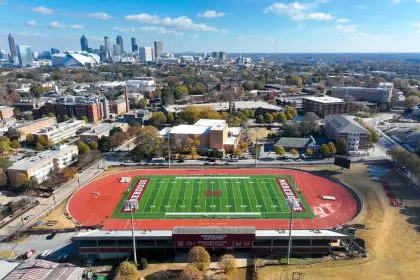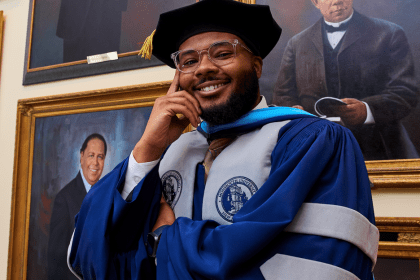
For weeks and months leading up to the 129th commencement at Morehouse College where President Barack Obama would stand before more than 500 mostly African American men, the political fall-out had been that critics of the president believed he had glaringly failed to explicitly outline a tailored policy agenda for African Americans.
“In this high-profile talk to his own demographic, the president has some explaining to do,” Georgetown University Law Professor Paul Butler said in a CNN op-ed a day before the speech.
Dr. Kevin Johnson, pastor of the Bright Hope Baptist Church in Philadelphia, outlined similar concerns about the President’s failure in an op-ed that appeared in The Philadelphia Tribune a day after he had been selected to be the baccalaureate speaker.
“The president’s agenda appears to be for everyone except black people — his most loyal constituency,” Johnson suggested.
For many, the President’s burden — as the first African American president — on that Sunday morning was to do what many argued he had failed to do for much of his presidency, which was to establish a connection between a key demographic and his success in the White House.
Then something happened. After laying out a historical narrative of the significance and connection between Morehouse and the broader American community with references to Maynard Jackson and Dr. King, his language became increasingly personalized and inclusive of the audience to which he was addressing.
“We know that too many young men in our community continue to make bad choices,” Obama said. “And I have to say, growing up, I made quite a few myself. Sometimes I wrote off my own failings as just another example of the world trying to keep a black man down. I had a tendency sometimes to make excuses for me not doing the right thing. But one of the things that all of you have learned over the last four years is there’s no longer any room for excuses.”
Those remarks were certainly not a policy prescription to many issues that have disproportionately impacted African Americans but he was under no obligation to speak to the broader African American community during this speech.
The president the country elected in 2008 and 2012 were transformational in many regards, turnout among minority groups had propelled him to the White House. So the pressures from many sides to outline a policy agenda tailored to different minority groups was considerably strong on that Sunday morning.
To read more Opinion: Black men for the world
















